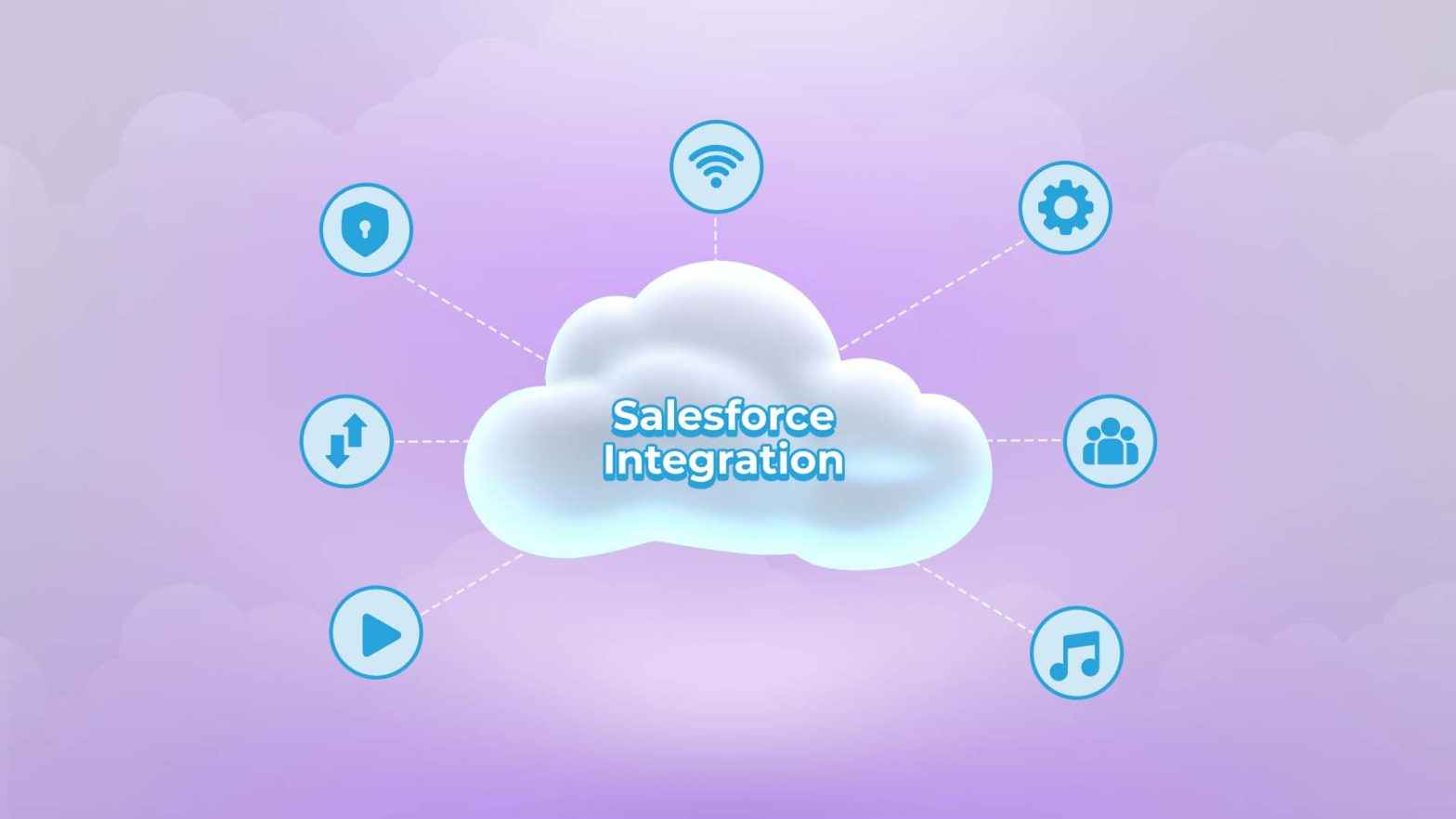Acquiring salesforce and integrating salesforce are two different things. Many organizations struggle with the latter. It is a major headache to handle ERP, billing, marketing automations, legacy databases and seamless data flows.
That’s where salesforce development services come handy as they help to bridge these gaps and help teams gain visibility and reduce manual data work. In this blog we will ponder upon the role of salesforce integration services and how it empowers businesses.
Why Integration Challenges Happen
In order to provide solutions we must understand the core problems which are as following:
- Fragmented data sources: Disconnected systems like ERP and Salesforce make customer data siloed and duplicated.
- Manual work and bots: Manual export and import of CSVs leads to delays and errors due to no integration.
- Lack of real‑time updates: Salesforce has to sync instantly with backend systems otherwise users will make decisions that are based on outdated information.
- Poor UX for users: Employees are likely to get frustrated due to repetitive data entry leading to burnout.
How Salesforce Development Services Address Integration Gaps
When you partner with companies that provide salesforce development services you are basically joining hands with people who can:
- Assess your ecosystem in order to determine integration needs and priorities.
- Architect integration strategy by choosing the right approach such as API-led connectivity, middleware, queues, etc.
- Build and configure custom objects, APIs, triggers, lightning components, middleware mappings, error-handling routines, and data transforms.
- Ensure data consistency, performance, and error resilience.
- Deploy and Migrate from sandbox to production. Ensure there is minimal downtime and maximum integrity.
- Maintain and optimize to keep integrations healthy.
Advantage of Custom Salesforce Development Services
Generic connectors or AppExchange apps might work for simple syncs, but complex businesses require tailored solutions.
Why customization matters:
- Industry-specific data structures – For example, manufacturing needs BOM, warranty, and service order syncs. Generic tools don’t understand those relationships.
- Complex transformations – You might need hierarchical data conversions or currency conversions not handled out of the box.
- Event-driven requirements – Custom integrations can react instantly. It is most likely to happen when stock changes, orders ship, or subscriptions renew.
- Security and compliance – You may need data encryption, IP whitelisting, or field-level encryption. Most generic apps can’t provide this.
This is exactly why choosing custom Salesforce development services is going to be a big change for you as it ensures your integration is tailored, future-proof, and aligned with your goals.
Unlocking Enterprise Agility with Salesforce Integration Services
Development is not everything. Successful integration relies on specialized Salesforce integration services. This is what it includes:
- Middleware selection & setup – Platforms like MuleSoft, Dell Boomi, Jitterbit, or custom API gateways are great at managing, monitoring, and mapping.
- API strategy & management – It is about defining REST/SOAP endpoints, authentication, payload limits, retry logic, and security.
- Sync strategy – Deciding between real-time updates. Focusing on near-time reflections, batch processes, or event streaming.
- Error handling & governance – Automated alerts, retries, fallback paths, and manual recovery workflows for resilience.
- Documentation & SLAs – Clear interfaces and support standards that empower business continuity and transparency.
This layered integration approach helps prevent failures and ensures your systems are truly connected at scale.
Getting Started: Your Integration Blueprint
- Audit systems & define objectives – Map out all systems and desired data flows.
- Choose the right team – Select a skilled team that knows everything about Salesforce development services and enterprise integration.
- Design your solution – Decide tech stack, architecture, and failover strategies with patience and contemplation
- Pilot and iterate – Start with high-impact integrations. You can expand gradually and there is no hurry.
- Operate & support – Implement monitoring. Focus on error-handling, and governance with dedication.
- Optimize – Continuously review metrics, expand integrations, and refine processes.
Final Thoughts
Integration has become an absolute necessity to compete with industry giants. We are living in a world where salesforce development services are the backbone of the modern digital ecosystem. When custom salesforce development services are combined with salesforce integration services the result is spectacular. Businesses are able to:
- Eliminate data silos
- Automate manual work
- Gain real-time insights
- Improve sales, support, and fulfillment
- Scale confidently and securely
If you are ready to break down technical barriers and unify your systems, partner with OCloud Solution.
Our experts who know how to build and optimize enterprise-grade Salesforce integration.
